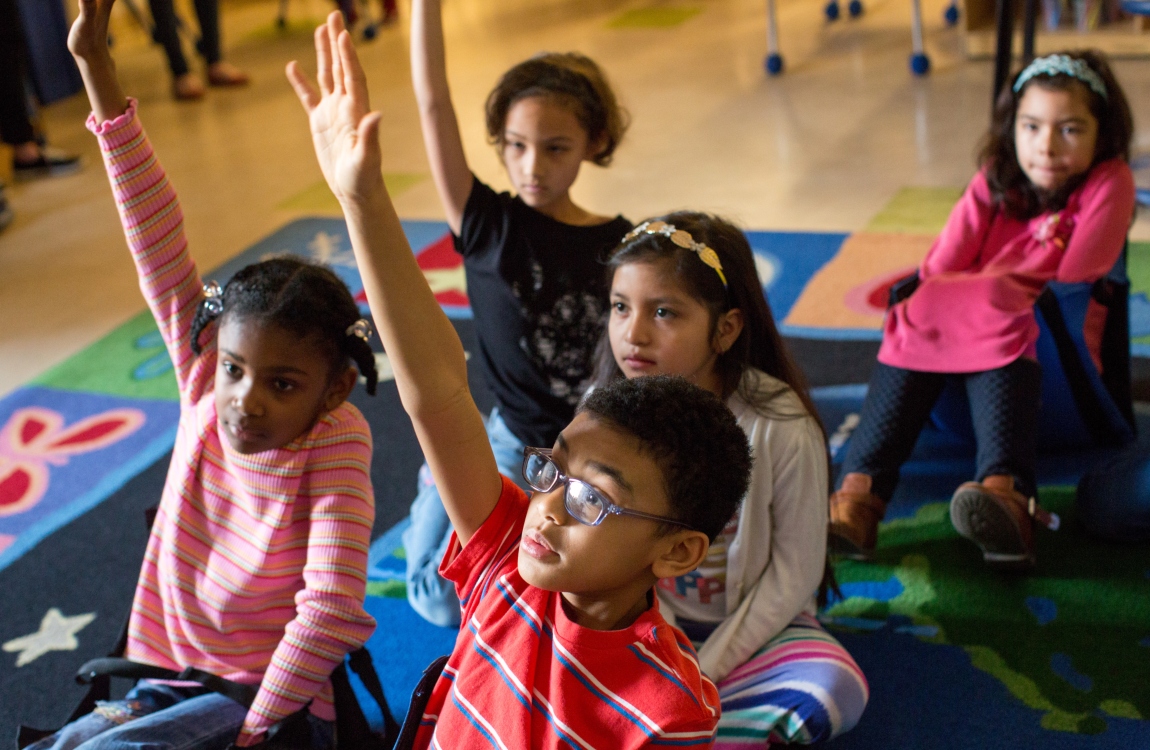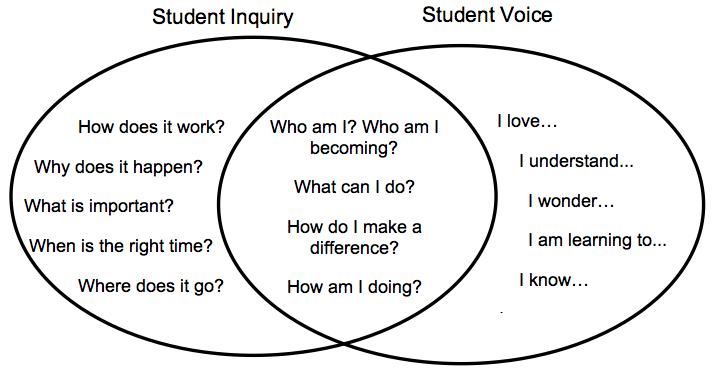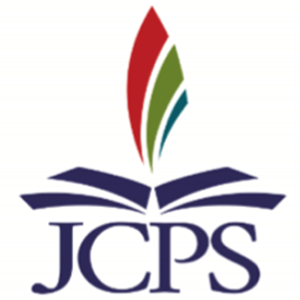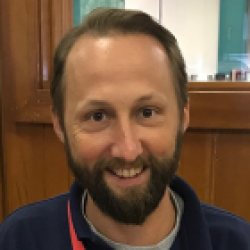
Because we recognize the value of Simon Sinek’s idea of starting with why, the Jefferson County Public Schools (JCPS, Kentucky) Deeper Learning Department is developing teachers’ capacity to plan for their classrooms with an end-in-view approach. We put the why and the who before the what and the how.
For example, we support the design of learning experiences and environments to reflect several long-held and time-tested values. Two of these are student inquiry and student voice, and they have guided teaching and learning for more than 2000 years. Their roots reach back to the Greeks, and they are represented in the questioning, dialogical styles of Socrates, and the “light-the-wood, not fill-the-vessel” attitudes of Plutarch.
Psychology and educational research presently confirm what educators of old recognized, that when students are asking and investigating the answers to their own questions, learning is deeper. When students are engaged in ways that shift their role from recipients of knowledge into active participants and constructors of their learning, learning is deeper still. Student inquiry and student voice are manifest in modern classrooms most directly through the practices of designing inquiry-based learning experiences, and creating learning environments that value, support and incorporate student voice and agency.
At the intersection between these two values lie four questions. Addressing these questions, implicitly and explicitly, are necessary for the skill and capacity development and well-being of both the learner and of the learning community as a whole.

Gold Standard Project Based Learning is being used as a primary strategy or approach in many deeper learning classrooms. This is in part because PBL provides learners, through experience, opportunities answers to these questions for themselves.
A question of Identity – Who am I or who am I becoming?
The design elements of authenticity, student voice and choice, and a public product give students opportunity to identify with their learning and personalize their academic and social growth. Feelings of ownership, pride, and a sense of purpose accompany the authentic usefulness of the work.
Students who create are producers. Students who apply academic skills and discipline in context are professionals. Students who use their voice are advocates. Students leave our classrooms telling themselves that, “School is important, I make a difference, and as I work, I improve.” Clarifying the meaning of “Who I am”, “What I can do”, and “What I am learning” grows the agency, confidence, and purpose that learners use throughout a lifetime to guide academic, career, and life choices.
A question of Capacity – What can I do?
When students address a challenging problem or question using processes of sustained inquiry in a collaborative setting, they do a lot. They research, create, share, and explain. They correct, revise, and refine. They apply key knowledge, understanding, and success skills in ways that mirror professionals in the field. They begin to create an imagination for the career paths they may one day follow or create.
As they do all these things, they exercise their powers of creative and critical thinking, of communication and negotiation, and of empathy and grit. They test their abilities against the world. They show themselves what they are capable of, and they see that their capacities grow as their powers are used. As these dynamics become evident to students, they show themselves answers to the question, “What can I do?”
A question of Agency – How do I make a difference?
 When students solve a challenging problem, they make a difference. When they exercise their voice and make choices, they see change occur. When they present a public product, they contributed something to the world that wasn’t there before. As they use key knowledge, understanding, and success skills, they change and improve themselves.
When students solve a challenging problem, they make a difference. When they exercise their voice and make choices, they see change occur. When they present a public product, they contributed something to the world that wasn’t there before. As they use key knowledge, understanding, and success skills, they change and improve themselves.
When processes for working are authentic and collaborative, students see themselves affecting the world, themselves, and their peers in real and obvious ways. As processes are designed to incorporate student voice and choice, and as students use these powers, their eyes are opened to their own agency. They are answering, both in terms of their learning and their relationships with others, “How do I make a difference?”
A question of Well-Being – How am I doing?
When the process of sustained inquiry is well-designed and expectations are high, then struggle, challenge, and difficulty are inevitable. Collaborating with a team to grapple with authentic, challenging problems, apply key knowledge at ever-higher levels, and create high-quality, public products is difficult work.
During critique and revision processes, students use these challenges and struggles as opportunities to reflect, connect, and build community. They exercise their powers of compassion, critical thinking, and caring to monitor and support the well-being of their peers and of themselves. They answer, both in the academic and the social-emotional sense, “How am I doing?”
Finally, a question of Belonging – Shifting from I to We
One further effect of use Gold Standard Project-Based Learning is that much of what we might call “behavior management” becomes intertwined with the management of the project itself. As motivation grows and momentum builds, the health of the classroom community and the quality of the projects they undertake become inter-dependent. The morale of the team affects their work. As this occurs, the four questions that were initially asked as “I” questions become “We” questions. What can we do? How do we make a difference? How are we doing? Who are we becoming? These questions take on new dimensions of meaning when they address students’ sense of and need for belonging.
Teachers using Project-Based Learning fulfill education’s truest and deepest ends when their classrooms are wrestling with these questions of capacity, agency, well-being, identity, and belonging. When we use PBL in this ends-in-view approach, we are developing people for the ultimate collaborative projects: their careers, their lives, and the critique and revision of the social, economic, and political institutions of our world.

